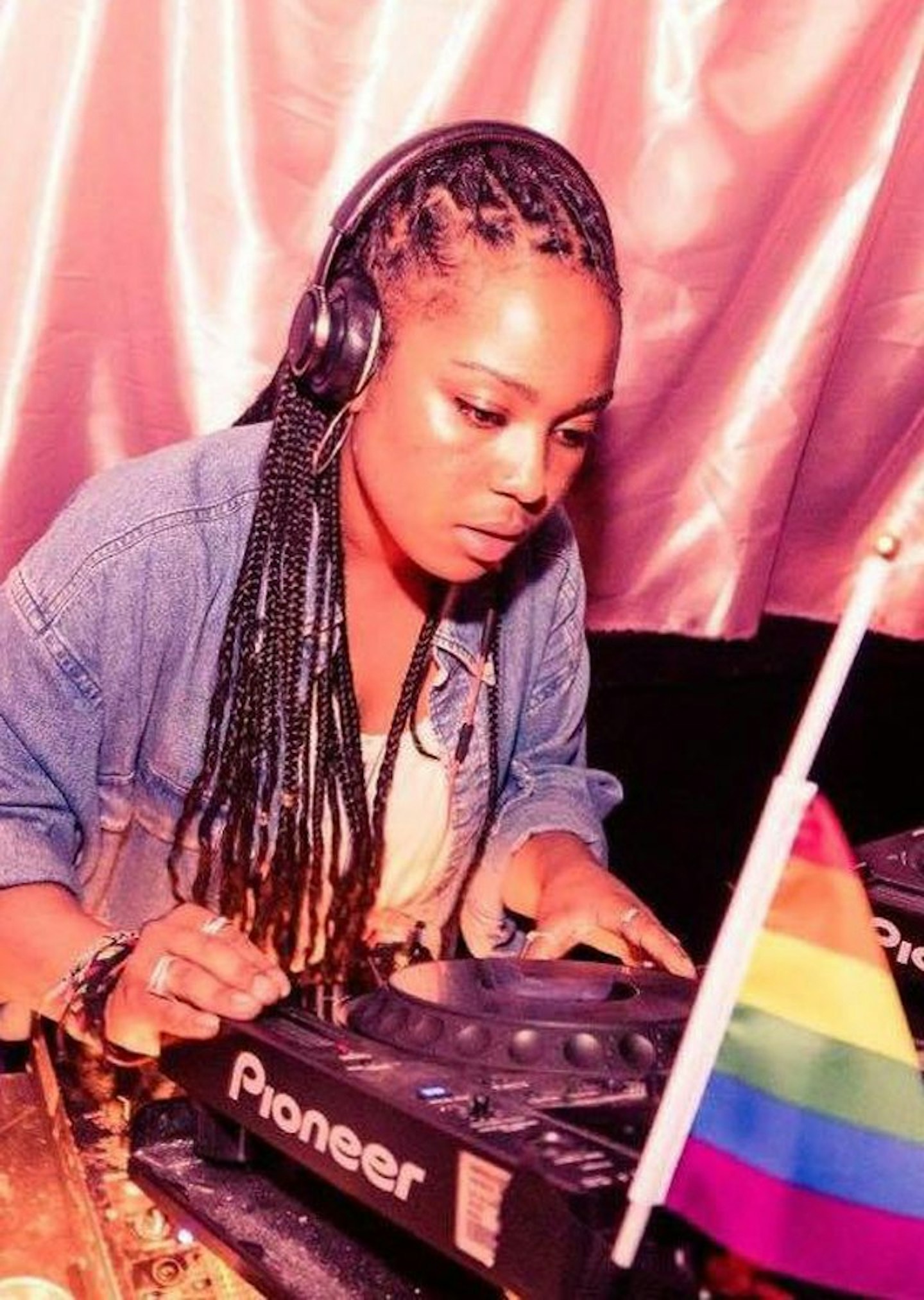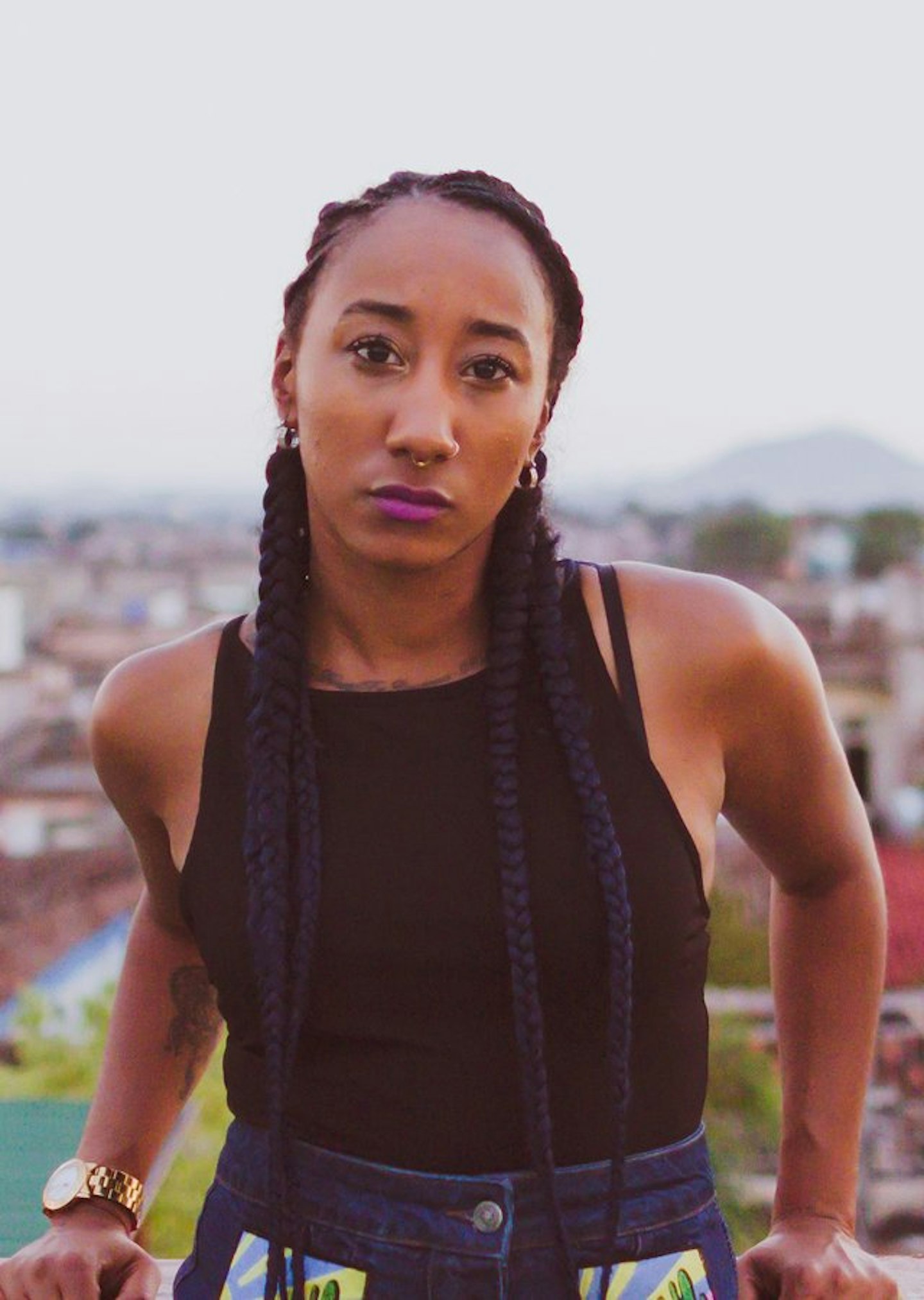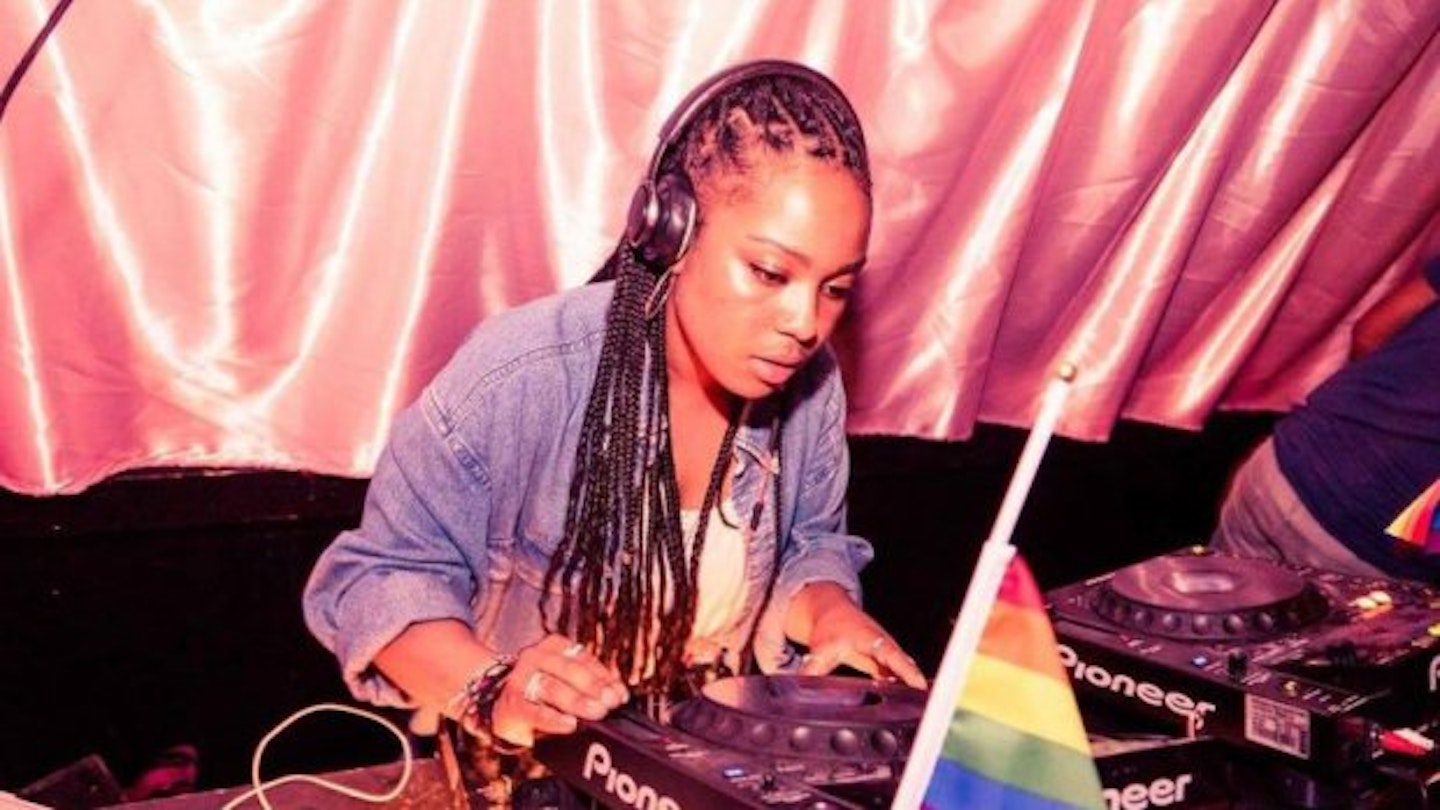Over the past decade that I’ve been going out to clubs, there are a lot of things that have stayed pretty much the same. The too-aggressive bouncers, the filthy toilets, the way some men like to put their hand on the small of my back as they walk past; while they’re often annoying, a lot of these clubbing constants are almost comforting in the way that you always know what to expect. What has changed, however? The faces of the people playing the tunes. These days female DJs — particularly, black female DJs — have become a lot more visible. As a black woman myself, seeing DJs who look like me, killing it behind the decks has become one of the best things about going out. But what’s behind the rise in black, female DJs?
For some people, the answer lies in visibility. In 2015, BBC Radio 1’s hire of Clara Amfo as the first black woman on its weekday daytime schedule was a huge step forward in making its line up more representative. DJs like Gemma Cairney and Melody Kane are regulars on the UK festival circuit, NTS presenter Throwing Shade has been making waves, while Rinse FM’s Josey Rebelle has played everywhere from the first Boiler Room back in 2009 to Outlook and Dimensions festivals in Croatia. As more black women are known on the scene—and most importantly, are known for being good at what they do—it’s no wonder they’re opening doors for a new crop of women who want to do the same.
Alongside visibility, however, is opportunity. These days, young black female DJs can often be found playing at nights like BBZ, Pussy Palace, Goldsnap and Magic Clit, nights set up by, for and with (queer) women of colour. With proud online announcements of their all-female line-ups and door policies reminding punters about consent and the idea of a safe space, these nights are filling a gap and serving a market that has long been neglected. On a larger scale, this year AFROPUNK London’s Sunday night DJ line up is full of black women. According to the AFROPUNK team, 'Black Girl Magic demonstrates and celebrates proud black women… [they] all inspire us creatively.' Alongside a number of black female singers, on the DJ side of things the festival boasts Clara Amfo, Hannah Faith, 1Xtra’s Jamz Supernova, FAM (a collective that includes NTS and the legendary Work It crew), and South-East London collective Born N Bread, alongside the gal-dem resident DJs.
_640x900.jpg?auto=format&w=1440&q=80)
gal-dem, a platform for women of colour, has been making waves on and offline for the past couple of years. Winning awards for journalism and releasing their first print issue last year, playing AFROPUNK is part of a summer that includes hosting events around the UK and a boat party at Outlook. 'I've just joined the gal-dem team as a resident DJ which is really exciting' 21-year-old Rabz tells me. 'All the gigs gal-dem are booked on get rotated between the 4 of us. It's only early days but I'm just excited to see where it can go, and I'm nervous and excited [about AFROPUNK this year]. It’s definitely going to be the biggest crowd I've ever played to. I've been into DJing since I was about 17. A friend of mine gave me a quick lesson once, and we played our first gig at Brixton Jamm. I got myself a controller with my first student loan and just went from there. I've always been very, very into music—my mum has a huge record collection and music was really important at home—so it made sense for me.'
Learning how to mix can be difficult for any burgeoning DJ. While all-female crew Resis’Dance holds workshops for women who want to learn the basics, most people tend to learn from friends. For 24-year-old Jordanne, who’s half of rising female DJ double act GCDJ (Girls Can’t DJ), her first teacher was her boss: 'I've been DJing for just over 2 years now. At uni I worked in a bar in Brighton and my managers were amazing reggae/dancehall DJs, and I was lucky: they taught me how to mix.'

While Jordanne admits getting into the industry has been difficult, she tells me 'luckily I have my partner in GCDJ Katie, and everything is easier and more enjoyable when you’re sharing it with someone. But this year is our first doing festivals and we are pretty much at one every weekend! In July alone we’re doing Blissfields, Brainchild, Portobello Festival and Secret Garden Party. Still, growing up I never really had a black female DJ in mainstream media to look up to—it was just predominantly white men—so the industry was very foreign to me. Yeah, there were radio hosts like Angie Greaves and Angie le Mar on Choice FM who I would listen to religiously, but they were all radio hosts rather than DJs. In my teens, I would never ever go into a club and see a woman of colour DJing, that just never happened. But there’s such a rise in female DJ's at the moment, and that's because women are seeing other women doing it and it gives them confidence. Reprezent Radio is so great because all their presenters are 25 and under, and I wish there was something like this when I was younger. In our society women are always told that to progress you need to be more like a man, and it’s incorrect. In London, there are so many women of colour DJ's that I respect and look up to, and I think there's a real sense of community. I love the Born N Bread girls, Chloedees, and Jamz Supernova, but that list could go on. And that list going on is something that makes me feel really positive about the rise in black female DJ's in such a short space of time.'

Jamz Supernova, aka 26-year-old Jamilla Walters, is someone whose name comes up a lot when you ask people about black female DJs in the UK. 'I don't think being a black female DJ has hindered me or propelled me—it is what it is,' she tells me a few weeks before her AFROPUNK set. 'But what I do notice is that for years there has been a lack of black female DJ's. When I first started raving in 2008 I didn't see any female DJ's, let alone black ones, [and] it was only working at Radio 1 that opened my eyes to female DJ's. I think now I would like to see a black female headline DJ. There's still a lot of work to be done in that area, but I feel positive.'
When asked about her favourite DJs who are also black women, Jamz said: 'I love Uniiqu3e, she's repping hard for us! I think she'll be the first black female headline act we'll see on a major festival in a few years. Then there are my 1Xtra & Radio 1 sisters Sian Anderson and Clara Amfo—Sian has been an instrumental part of grime, and Clara has inspired black women everywhere with her move to Radio 1. Melody Kane is a very, very sick DJ, the ultimate party DJ, who can smash any style and was very supportive of me in the early days. Kitty Cash and Vashtie from the States are amazing DJ's who also have built a sick brand both in music and fashion, and Shyone puts in the work. There’s not a London radio station she hasn't covered or club she hasn't smashed, and she produces. Darkstepper is technically mind blowing and one to watch, and my partner in crime K2RAH: we started learning together and spurred each other on.'
Despite the positivity everyone I spoke to had about the future of black women in the music industry, it was obvious that things can still be difficult. 'I think in every field being a woman of colour is a challenge', Jordanne tells me. 'DJing, it's definitely fair to say I've had problems with gender. From bad treatment from venues, to promoters, to general punters, there have been incidents when I've had to really stand up for myself. Of cours, then I’ve been hit with the "aggressive" label. It's really hard as a black woman in a white male dominated industry to not allow yourself to get walked on, but also not blacklist yourself. It's so easy to call an outspoken black woman aggressive and that label can so easily tarnish your reputation.' Rabz agrees: 'being a Black queer woman is pretty much always a barrier to success in any field. I look at the successful DJs who play similar stuff to me, i.e. white men, and they tend to gain so much more cultural and economic capital "discovering" music that Black folks have been bumping for years. We're also not expected to play anything other than Hip-Hop and R&B—people ask me to play Drake at least twice at every gig—or to know how to mix, or how to use tech. As well as that, misogynoir is real in electronic music. Responses to Black women DJs tend to be pretty vile, too, [like] the comments on Jayda G's Boiler Room.'
As black female DJs become more and more visible, it’s obvious that things won’t be easy. When it comes to advice for young black women wanting to get into the industry, however, Jamz is clear: 'don't even think about being black or female, just crack on. Get learning, get practising, get hustling. I've been learning to DJ for around four years. I got into it after I began to work in radio, [when] I realised that to be taken seriously I would need to DJ too. I came in through the back door and started working behind the scenes from an early age, but to cross over took the best part of five years with many knock backs. Its been a slow burn, but worth it. Everything worth having has a level of difficulty'. For hopeful DJs, seeing and listening to women like Jamz on bigger and bigger stages is sure to make a difference. As club nights with inclusive line-ups continue to do better and better, let’s hope that seeing women of all backgrounds behind the decks becomes something so common we won’t need to point it out.
Like this? You might also be interested in...
Remember Willow Smith? Yeah, She's Still Making Music And You Should Have A Listen
**Follow Bridget on Twitter **@bridgetminamore@bridgetminamore
This article originally appeared on The Debrief.
